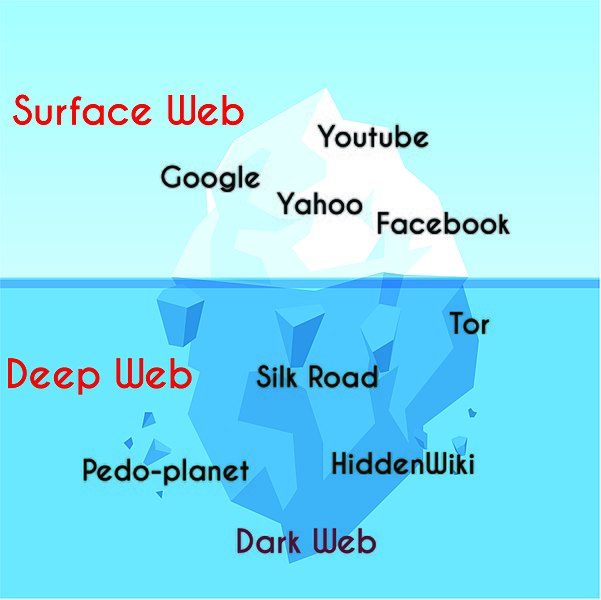Internet goes beyond tip of the iceberg with deep web
February 15, 2018
The Internet grants everyday citizens access to the world wide sea of information and facts. In this sea, search engines such as Google and Yahoo serve as guides across the surface, but there is one problem: these guides only show us the surface of the vast and ever-growing ocean. Search engines explore the seas through the use of millions upon millions of bots scouring through the islands of websites, cataloguing an immeasurable amount of information. However, these search engines offer very little of the great wealth of knowledge that the internet has, charting the blue ocean so that users can navigate its seas.
However, just underneath the clear blue oceans of the internet, there lies the deep web. The dictionary defines the deep web as, “the part of the World Wide Web that is not discoverable by means of standard search engines, including password-protected or dynamic pages and encrypted networks.” Essentially, search engines attempt to catalogue the all the information and data in the World Wide Web through the use of millions upon millions of bots, but these bots have catalogued only a part of the World Wide Web. Any URLs and web pages that these bots have not catalogued makes up the deep web, such as corporate cloud storage to scientific databases to even private social media accounts. The only way to reach these web pages requires authorizations from the website’s administrators and their specific URL. In other words, specific coordinates must be given to those who desire to dive into the depths of the world wide. This may seem suspicious, but the deep web provides many tools to desperate people across the world. For example, in countries where the internet is heavily regulated, the deep web enables whistleblowers and activists to safely and effectively operate to maintain the public good. The deep web serves for the good of humanity and must be maintained and promoted.
It is often believed that the deep web holds all the nefarious and infamous acts of evil terrorist or gang organizations, but in reality, many confuse the deep web with the dark web. The dark web holds many similarities with the deep web, but a few crucial differences remain. People need special software and web browsers such as The Onion Router and the Invisible Project to serve as their submarines to delve deeper into the vast ocean of the world wide web and to access restricted content. From a study during 2016, the King’s College of London broke down the dark web down primarily into the following categories: botnets which are a series of computers that autonomously perform malicious actions, Bitcoin services and darknet markets where transactions of illegal substances occur. In addition to these malevolent dark web activities, the dark web hosts hacker rings that charge their skills for a penny much like mercenaries, scams and counterfeit websites, and even child pornography. For those curious to venture into these uncharted and dangerous waters, the dark web holds many of the evils and most disturbing elements of the internet and should be avoided at all costs. The dark web must be removed from the internet. It promotes many evils, perverting the beauty of the world wide web into a disturbing and sick market that only harms humanity.
People navigate the ocean of information that is the world wide web, but many only explore the surface of this ominous ocean. Underneath the surface lies the deep web, and in the deep web lies the dark web, the dark and terrifying part of this ocean, which all must avoid and denounce.



